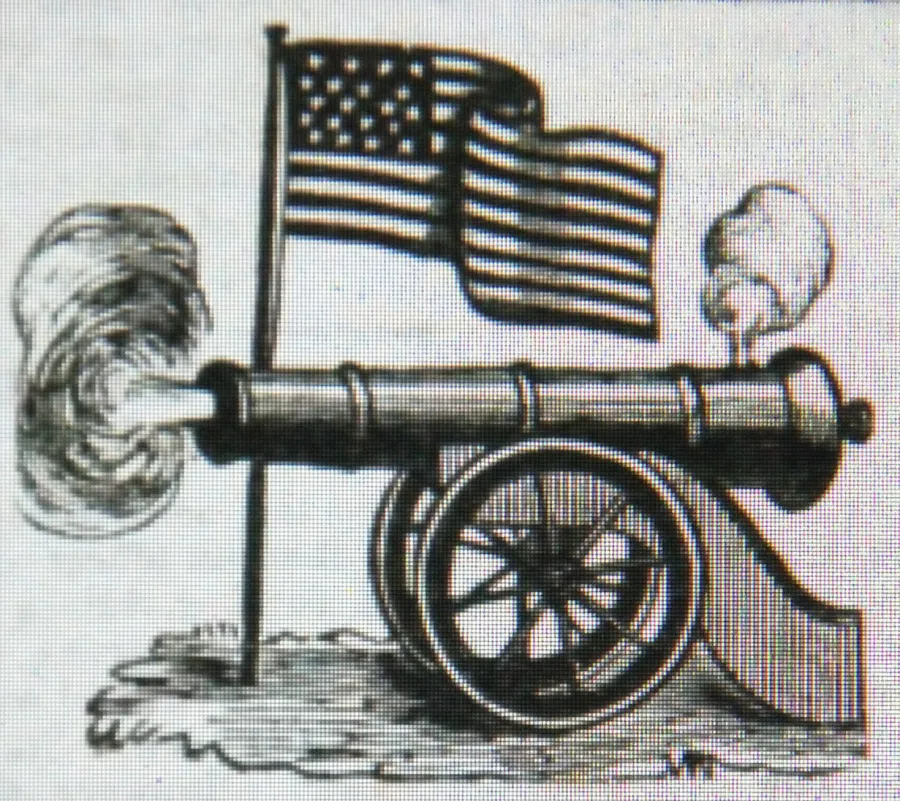'Whiskey and apple toddy flow through our cities and villages'

By BERRY CRAIG
AFT Local 1360
When the polls are open in Kentucky, the bars are closed.
That’s because the Bluegrass State was once famous for simultaneous boozing, brawling and balloting.
“I turned away a confirmed believer in the doctrine of total depravity,” wrote Louisville Journal editor George D. Prentice after witnessing an 1830s election.
A native New Englander, Prentice came to Kentucky to write a campaign biography of Henry Clay and then go home. A group of influential Whigs started the Journal in 1830 and persuaded the 28-year-old Prentice to stay and run the paper.
Meanwhile, as he worked on the Clay book, Prentice sent stories to the Hartford-based New England Review, where he had been editor. The literary journal published his missives as “Letters from a Strolling Editor.”
Prentice was aghast at the liquor-fueled fighting, informing his Yankee readers that when Kentuckians voted, “whiskey and apple toddy flow through our cities and villages like the Euphrates through ancient Babylon.”
Prentice conceded that the election was “conducted with tolerable propriety in Lexington,” hometown of Sen. Clay, a national Whig leader and the young editor’s hero.
He was uncharitable toward Frankfort, the state capital, which seemed to tilt toward President Andrew Jackson, Clay’s political and personal foil. In the capital city, “Jacksonianism and drunkenness stalked triumphant--‘an unclean pair of lubbery giants,’” Prentice punched.
He recounted that at the polls several “‘runners,” each one “with a whiskey bottle poking its long neck from his pocket, were busily employed bribing voters, and each party kept half a dozen bullies, genuine specimen of Kentucky alligatorism, to flog every poor fellow who should attempt to vote illegally.”
By “illegally,” Prentice evidently meant voting for the other party’s candidate. (Everybody knew who you voted for because the law called for voice voting. The secret ballot came later.)
At any rate, he figured “a half a hundred mortar would scarcely fill up the chinks of the skulls that were broken on that occasion.”
One of the whiskey-toting toughs asked Prentice if he was a voter. When he said no, the brute replied “‘Ah, never mind,’” and proffered Prentice a bottle. “‘Jest take a swig at the cretur and toss in a vote for Old Hickory’s boys—I’ll fight for you, damne!”
Prentice decided discretion was the better part of valor. “Here was a temptation to be sure; but after looking alternately at the bottle and the bullies who were standing ready with their sledge-hammer fists to knock down all interlopers, my fears prevailed and I lost my whiskey.”
Soon afterwards, Prentice “witnessed a fight that would have done honor to Mendoza and Big Ben.” “Big Ben” Brain and Daniel Mendoza were famous 18th-century British boxers.
One double-fisted election day combatant belonged to a gang called “the Salt River Roarers.” The other battler Prentice christened “Bullet Head,” declaring that the man’s noggin, framed with black hair, “looked like a forty pound cannon shot” and that his bulging biceps resembled “a pair of cables knotted at the ends.”
The gladiators “tugged and strained and foamed at the mouth, and twined like serpents around each other’s bodies” until Bullet Head managed to pin his opponent. “‘Gouge him!” a dozen men yelled. As he prepared to pop out the Roarer’s eye, “the prostrate man, roused by desperation and exerting a strength that seemed superhuman, caught his assailant by the throat with a grasp like that of fate,” Prentice recounted.
Thus throttled, Bullet Head’s face “turned black, his tongue fell out of his mouth, and he rolled to the ground as senseless as a dead man.”
Prentice’s mockery doubtless delighted sophisticated New Englanders and confirmed their suspicions that Kentuckians and other Westerners were brainless, brawling, besotted barbarians.
In any event, Prentice’s scorching satire presaged his editorializing at the Journal. He would eagerly eviscerate his enemies --- rival editors, Democrats, Confederates and Republicans—and often kept a loaded pistol handy.